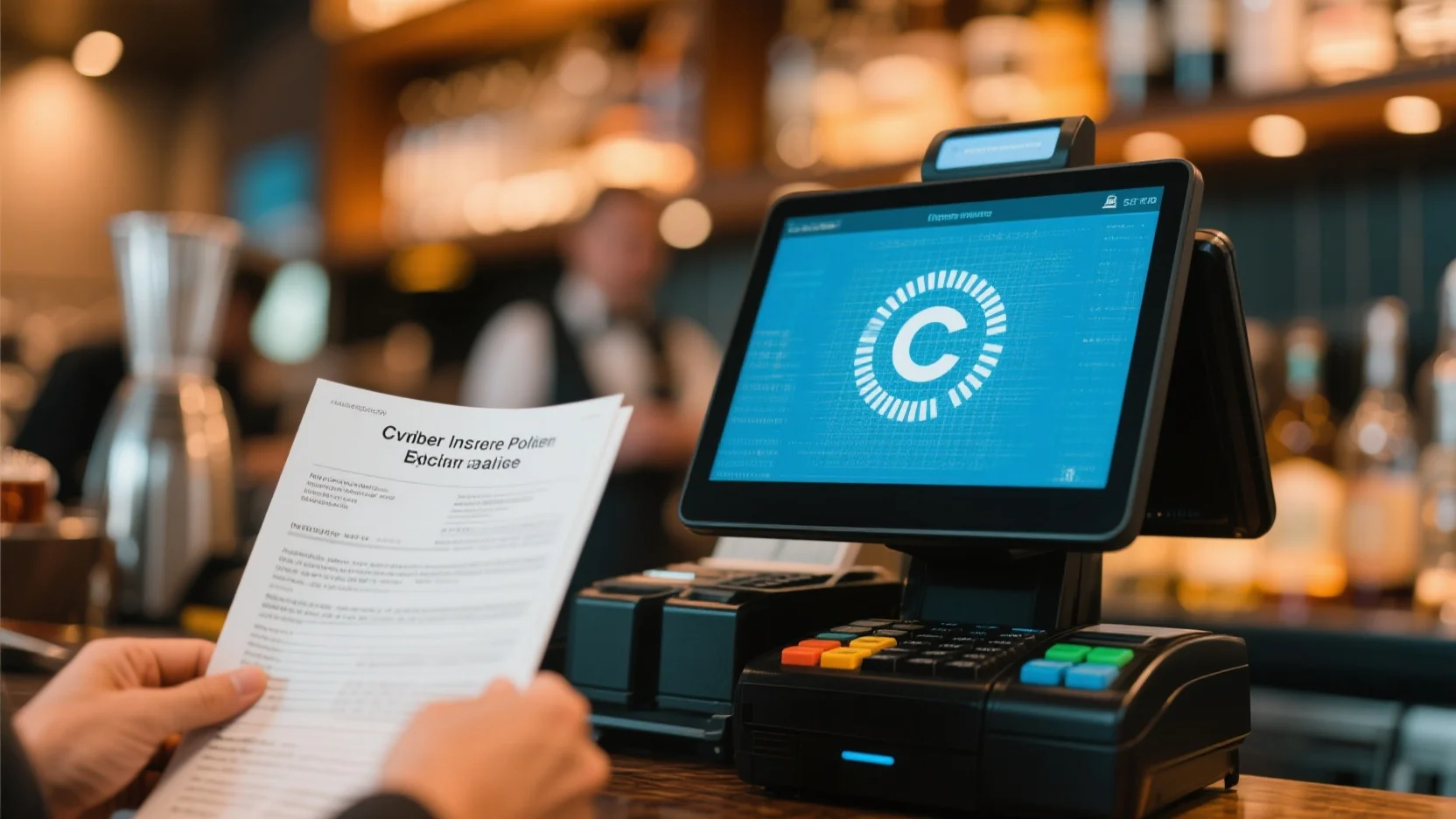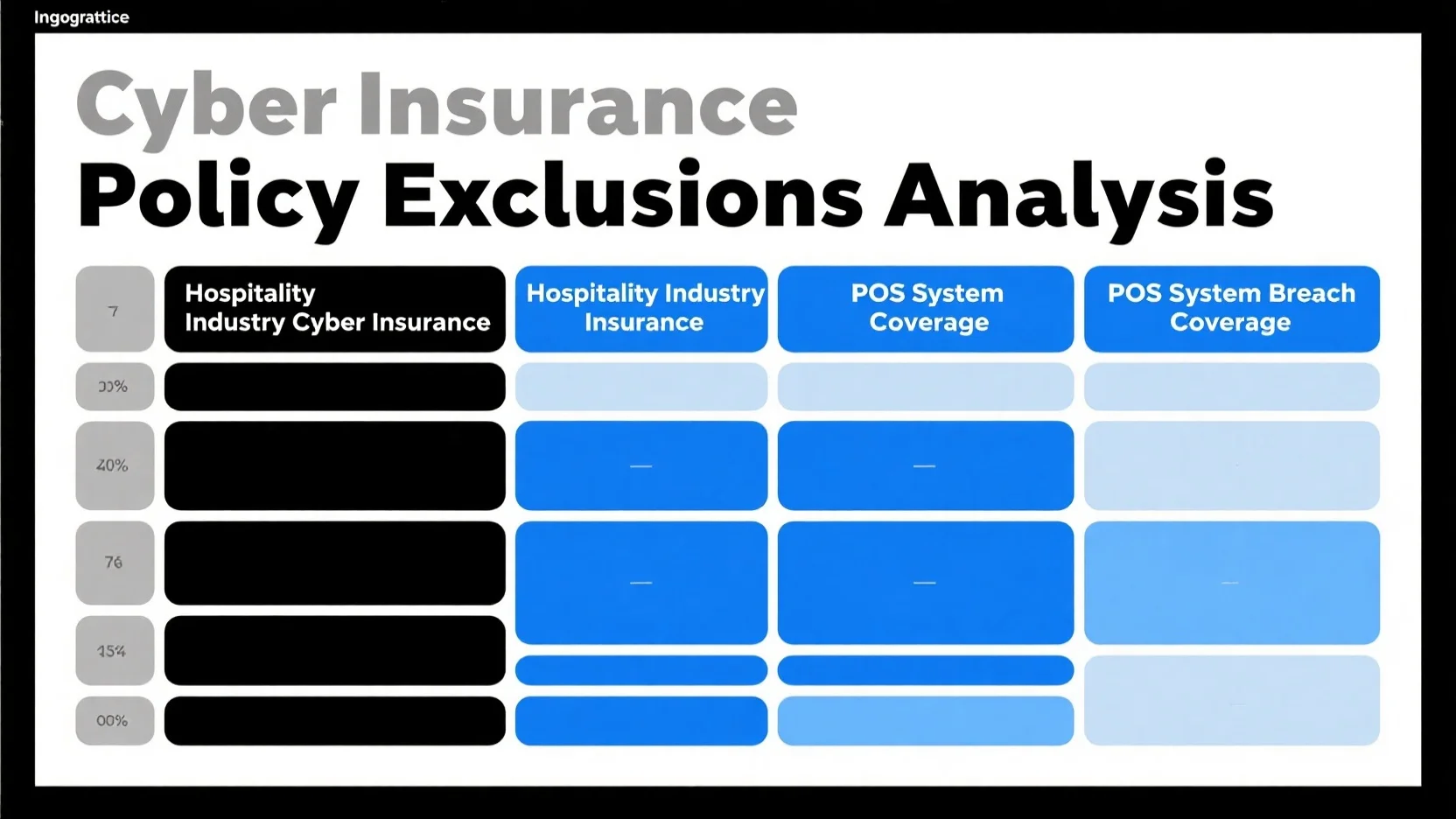In 2024, the hospitality industry faced a staggering 282 ransomware breaches in the retail and hospitality sectors, as reported by a SEMrush 2023 study. Protecting your business with top – notch cyber insurance is now an urgent necessity. Compare premium cyber insurance models to counterfeit ones and get a Best Price Guarantee. Renowned US authority sources like Munich Re and RiskIQ show the growing importance of this insurance. Our comprehensive buying guide offers a free POS system security assessment and explains both POS system breach coverage and policy exclusions, ensuring your business is protected with Free Installation Included in select policies.
POS System Breach Coverage
Did you know that since the start of 2024, 282 ransomware breaches have been detected in the retail and hospitality industries, with 48.4% of these breaches attributed to the activity of three ransomware groups — LockBit, Play and 8BASE (SEMrush 2023 Study)? In the hospitality industry, POS system breaches are a significant concern due to the sensitive information these systems handle.
Types of breaches covered
Common covered claim types
Common covered claim types in a cyber insurance policy for POS systems often include losses due to malware attacks, phishing, and ransomware incidents. For example, if a hospitality business’s POS system is infected with ransomware, the insurance may cover the cost of data restoration and the ransom payment in some cases. A well – known case is when a small restaurant chain was hit by a ransomware attack. Their POS system was locked, and they had to pay a ransom to regain access to their customer data and transaction records. Thanks to their cyber insurance policy, they were able to recover a significant portion of the ransom amount.
Pro Tip: Regularly back up your POS system data to an off – site location. This can help reduce the impact of a ransomware attack and potentially lower your insurance claim amount.
POS – specific threats leading to covered breaches
POS – specific threats that can lead to covered breaches include device end – point vulnerabilities, the inability to apply encryption to transaction data, and POS – laced macro threats. POS systems are difficult to secure because they handle critical information and need to be accessible within the network. As recommended by industry experts, conducting regular security audits of your POS devices can help identify and mitigate these threats.
Types of POS system – related losses covered

Financial losses
Financial losses related to POS system breaches can be substantial. This includes direct losses such as the cost of system restoration, payment of ransoms, and indirect losses like lost business due to system downtime. For instance, if a hotel’s POS system is down for a few days due to a cyber attack, it may lose revenue from missed reservations and in – house sales. A cyber insurance policy can cover these financial losses to help the business get back on track.
Top – performing solutions include policies that offer comprehensive financial coverage for both direct and indirect losses. When choosing an insurance policy, look for one that clearly outlines the extent of financial coverage for POS system breaches.
Coverage limitations
It’s important to note that cyber insurance policies for POS systems have coverage limitations. Many policies have exclusions for losses that occur due to the business’s failure to follow minimum required security practices. For example, if a business fails to update its POS system software regularly and this leads to a breach, the insurance company may deny the claim. Additionally, some policies may have a notice provision that requires the business to discover and notify the insurer about a loss before the end of the policy period.
Key Takeaways:
- Common covered claim types for POS systems include malware, phishing, and ransomware attacks.
- Financial losses related to POS system breaches can be covered, but policies have limitations and exclusions.
- Regular security audits and data backups are essential for protecting your POS system and maximizing insurance coverage.
Try our free POS system security assessment tool to see how vulnerable your system is to cyber threats.
Cyber Insurance Policy Exclusions
The landscape of cyber insurance is complex, and understanding policy exclusions is crucial for businesses in the hospitality industry. A study by Munich Re estimates that the global cyber insurance market totaled $15.3 billion in 2024 and is expected to reach $16.3 billion in 2025. With such a significant market size and rapid growth, it’s essential to know what isn’t covered by cyber insurance policies.
Common exclusions
Losses from acts of war, terrorism, or other hostile actions
Cyber insurance policies typically exclude coverage for losses resulting from acts of war, terrorism, or other hostile actions. While this exclusion may seem irrelevant to most businesses, it’s important to remember that cyber – attacks can be perpetrated by nation – states or terrorist organizations. For example, in some geopolitical conflicts, state – sponsored hackers have targeted private companies’ cyber systems, causing significant disruptions.
Pro Tip: Businesses should stay informed about global political situations and potential cyber – threats associated with them. They can consult with a Google Partner – certified insurance advisor to understand how to mitigate these risks.
Prior Knowledge Exclusion
If a business has prior knowledge of a potential cyber – threat or a security vulnerability before purchasing the policy, the insurance company may exclude claims related to that known issue. For instance, if a hotel is aware that its POS system has a software bug that could lead to a breach but still buys a cyber insurance policy without disclosing this, any claim resulting from that bug may be denied.
Pro Tip: Always be transparent when purchasing a cyber insurance policy. Conduct a thorough security audit of your systems and disclose all relevant information to the insurer.
Claims from breaches before the Retroactive Date
Many cyber insurance policies have a retroactive date. Claims for breaches that occurred before this date are usually excluded. For example, if a hotel’s policy has a retroactive date of January 1, 2025, and it discovers a data breach that took place on December 31, 2024, the claim for this breach will not be covered.
As recommended by leading industry tools like RiskIQ, businesses should carefully review the retroactive date clause in their cyber insurance policies and ensure it aligns with their security assessment timelines.
Significance of understanding exclusions
Understanding cyber insurance policy exclusions is of utmost importance for businesses in the hospitality industry. The industry has grappled with numerous high – profile data breaches in recent years. For example, last year, Omni Hotels & Resorts suffered a cyberattack that forced a system shutdown, disrupting reservations and other services. If Omni Hotels had not understood the exclusions in their cyber insurance policy, they could have been left with significant financial losses.
A technical checklist for understanding exclusions:
- Read the policy document thoroughly.
- Highlight all exclusion clauses.
- Consult with an insurance expert to clarify any ambiguous terms.
- Keep track of industry trends regarding exclusions as policy wordings are constantly evolving.
Key Takeaways:
- Cyber insurance policies commonly exclude losses from acts of war, prior knowledge situations, and breaches before the retroactive date.
- Understanding these exclusions is crucial to avoid claim denials and financial losses in the event of a cyber – attack.
- Businesses should be transparent, informed, and seek professional advice when dealing with cyber insurance policies.
Try our cyber insurance exclusion checker to see if your policy has any gaps that could leave you unprotected.
FAQ
What is POS system breach coverage in hospitality industry cyber insurance?
POS system breach coverage in hospitality industry cyber insurance safeguards businesses from losses due to cyber – attacks on their Point – of – Sale systems. According to industry reports, it commonly covers malware, phishing, and ransomware incidents. This includes costs for data restoration and, in some cases, ransom payments. Detailed in our [Types of breaches covered] analysis, regular data backups can enhance this coverage.
How to maximize POS system breach coverage in cyber insurance?
To maximize coverage, follow these steps: 1) Conduct regular security audits of POS devices to identify and mitigate threats. 2) Regularly back up POS system data to an off – site location. Unlike neglecting these steps, this approach can reduce claim amounts and the impact of attacks. Professional tools can assist in these tasks.
How to understand cyber insurance policy exclusions?
Understanding policy exclusions involves: 1) Thoroughly reading the policy document. 2) Highlighting all exclusion clauses. 3) Consulting an insurance expert. As recommended by RiskIQ, businesses should also align the retroactive date with security assessment timelines. This helps avoid claim denials, as detailed in our [Significance of understanding exclusions] section.
POS system breach coverage vs cyber insurance policy exclusions: What’s the difference?
POS system breach coverage pays for losses from cyber – attacks on POS systems, such as malware and ransomware. In contrast, cyber insurance policy exclusions list scenarios not covered, like acts of war and pre – existing vulnerabilities. Understanding both is crucial, as neglecting exclusions can lead to unexpected claim denials.
